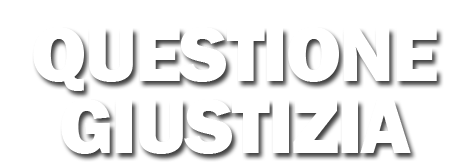Judge in Exile: A Journey from Justice to Persecution
Although the story I share is one of deep struggle and hardship, it is an honour to speak before you today. While my journey is deeply personal, it is just one example of a broader crisis that is affecting thousands of people. It highlights the intersection of justice, human rights and refugee issues and the dire consequences that arise when the rule of law collapses and authoritarian regimes tighten control.
As you listen to my story, I ask you to remember that my experiences are not unique. They reflect the plight of countless individuals like me who have been forced to flee their homes in search of safety and justice.
1. A career in Justice / 2. The descent into chaos / 3. The coup and the witch hunt / 4. Personal persecution / 5. A life in limbo / 6. Seeking refuge / 7. The unsung heroes / 8. Epilogue: refugee rights and the rule of law
1. A career in Justice
For the first decade of my career, I devoted myself to the principles of justice and the rule of law in Turkey. I began as a tax inspector at the Ministry of Finance, a role I held for two years before becoming a judge. My judicial journey took me through two years at the tax court and eight years at various administrative courts. I was passionate about upholding the law and ensuring that justice was served.
2. The descent into chaos
Turkey’s descent into chaos began with the Gezi Park protests in 2013. Initially, a demonstration against the destruction of trees in Istanbul’s Gezi Park, it quickly escalated into a broader movement against the government. The Erdogan regime branded this democratic struggle a coup attempt, leading to a witch hunt against its opponents. Arrests and casualties followed, marking another beginning of a dark era for Turkey.
On December 17, 2013, Turkey’s largest corruption operation implicated the then prime minister, ministers, and their families. Those who conducted the investigation were accused of attempting a coup and were arrested. This event was yet another mark, the escalation of Erdogan’s crackdown on media, NGOs, and opposition voices, creating an atmosphere of fear and repression.
3. The coup and the witch hunt
July 15, 2016, marked a dramatic shift. An ostensible coup attempt that night led to chaos, and at around 3 a.m. an arrest warrant for 2,840 judges and prosecutors was issued. The arrest warrant even included judges who had passed away or retired months before. This alone raises serious questions about the true perpetrators of the ostensible coup attempt.
A state of emergency was declared on July 20, 2016, suspending numerous constitutional rights. The ensuing crackdown saw mass arrests and dismissals of thousands, including judges, military officers, academics, doctors, and teachers. Already half-dependent judiciary’s independence was obliterated, and human rights violations became rampant.
4. Personal persecution
On the night of the coup attempt, I was on vacation in my village. The High Council for judges sent me a message cancelling my vacation and ordering me back to court. I left my family and set off, but was arrested en route. The arrest warrant was from the capital, but the local prosecutor had no details. I was detained, and my home was raided by police who seized my belongings. I was released four days later, only to be arrested again seven months later on my daughter’s birthday. This time, I was detained for 18 months in a prison cell designed for nine but holding 24 inmates. I slept on the ground for six months before getting a bed.
5. A life in limbo
After my release, I struggled to find work. Potential employers feared government retribution. My family faced continuous harassment, and our assets were frozen. My wife was investigated for receiving financial support from European judges, turning our lives into a nightmare.
Desperate, we decided to flee Turkey. I took a free online seaman course, obtained a boat license, and bought a small boat with a colleague. Our first escape attempt failed, and our boat sank during the second. On our third attempt, we crossed the Aegean Sea to a Greek island, where I was arrested. The support coming from Filipe Marques, president of MEDEL, and some other colleagues was a true relief in that duration.
6. Seeking refuge
In Athens, I tried to get a fake passport but was caught. Eventually, I secured a passport and made my way to safety. Reflecting on my journey, I feel fortunate. Many of my colleagues died or were re-arrested while trying to escape. Some are still in jail, including my president, Murat Arslan.
7. The unsung heroes
Throughout my ordeal, certain individuals stood out as beacons of hope and support.
Gualtiero Michelini, President of MEDEL 2015-2017: he gave the fastest reaction to our arrest and dismissal right after July 15, 2016. Even though we did not even understand as Turkish judges what was going on in that encounter, he and the MEDEL team of the period took an extremely accurate and determined stance. He took the lead in the establishment of the fund, which still provides financial support to incarcerated judges and their families.
Filipe Marques, President of MEDEL 2017-2022: he continued the struggle as soon as he took over the flag from Gualtiero Michelini. Over five years, he led an unprecedented solidarity movement in the history of the judiciary. He became the voice of the victims on every platform. He was targeted and declared an enemy by the Turkish government, but he never backed down.
Mariarosaria Guglielmi, President of MEDEL 2022, present: she took a significant initiative as soon as she held the office. She signed the communication bringing the crimes against humanity committed in recent years by Turkish government officials to the International Criminal Court Prosecutor’s Office. At the same time, by leading the initiatives taken before the Parliament of the Council of Europe, she pioneered solutions that would enable to turn non-implementation of the decisions of the European Court of Human Rights into sanctions.
8. Epilogue: refugee rights and the rule of law
The 2016 Turkey-EU deal on refugees was a disgraceful act, setting a troubling precedent. The quality of democracy and the rule of law in any country can be measured by how it treats its refugees, prisoners, and the mentally ill. Refugee rights are human rights, yet asylum seekers face immense difficulties, including pushbacks and inadequate reception conditions.
The EU Commission’s annual rule of law reports often ignore these issues, cherry-picking what they consider as rule of law. True rule of law cannot turn a blind eye to the plight of refugees and asylum seekers.
In closing, I extend my deepest gratitude to the unsung heroes who have supported me and countless others in our fight for justice and human rights. Your bravery and selflessness are a testament to the enduring human spirit in the face of oppression.

